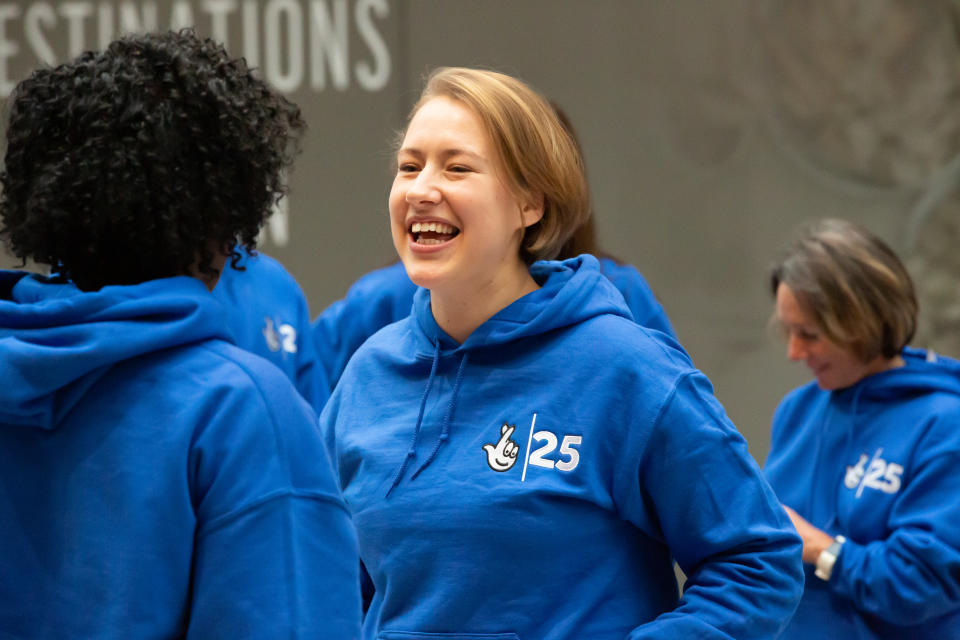Yarnold reflects on glittering career

Great Britain’s most successful winter Olympian Lizzy Yarnold is not short of fond memories from her sporting career but she knows her success may not have ever been possible without the support from National Lottery funding.
Yarnold, who retired from skeleton last year after retaining her Winter Games title in PyeongChang, joined past and present Great Britain stars at the Olympic Park in Stratford on Thursday 24 October to mark the 25-year anniversary of the National Lottery.
To date, more than 5,000 elite athletes have benefited from National Lottery funding, enabling them to have access to some of the best coaching, facilities and support staff in the world.
With skeleton not being the most well-known or supported sport in Great Britain, Yarnold knows that without the funding she received, she probably wouldn’t have been standing on that podium in PyeongChang last year as the most successful Olympic skeleton athlete of all time.
“It’s made a young girl’s dream come true,” she said.
“Winter sports benefit hugely from National Lottery funding. Skeleton and winter sports are not so well-known, so the funding has always made a huge difference to us.
“If I didn’t have the funding, I wouldn’t have been able to compete internationally and go to an Olympics and bring home gold medals.”
Before funding began for elite sport, Great Britain ranked 36th in the medal table at the 1996 Atlanta Summer Olympics, but at Rio 2016, after almost two decades of funding, Team GB finished second.
Since grants were first awarded to elite athletes in 1997, 864 medals have been won by Britons at Olympic and Paralympic Games, and Great Britain became the first country to improve on their medal count after a home Games at Rio 2016.
“In Atlanta 1996, we performed badly as a team which kickstarted the lottery funding and since then, it’s been amazing to see us get better and better,” added Yarnold.
“People buying lottery tickets don’t always even realise that they are helping athletes train full-time, helping promote equality between men and women in terms of funding.
“It helped us perform at our absolute best and do our country proud.”
Since the National Lottery’s first draw took place on 19 November 1994, more than £40 billion has been raised for good causes in the areas of arts, sport, heritage, culture, film, charity and community.
Discover the positive impact playing the National Lottery has had on your community over the past 25 years by visiting www.lotterygoodcauses.org.uk and get involved by using the 25th hashtag: #NationalLottery25

 Yahoo Sport
Yahoo Sport 





































